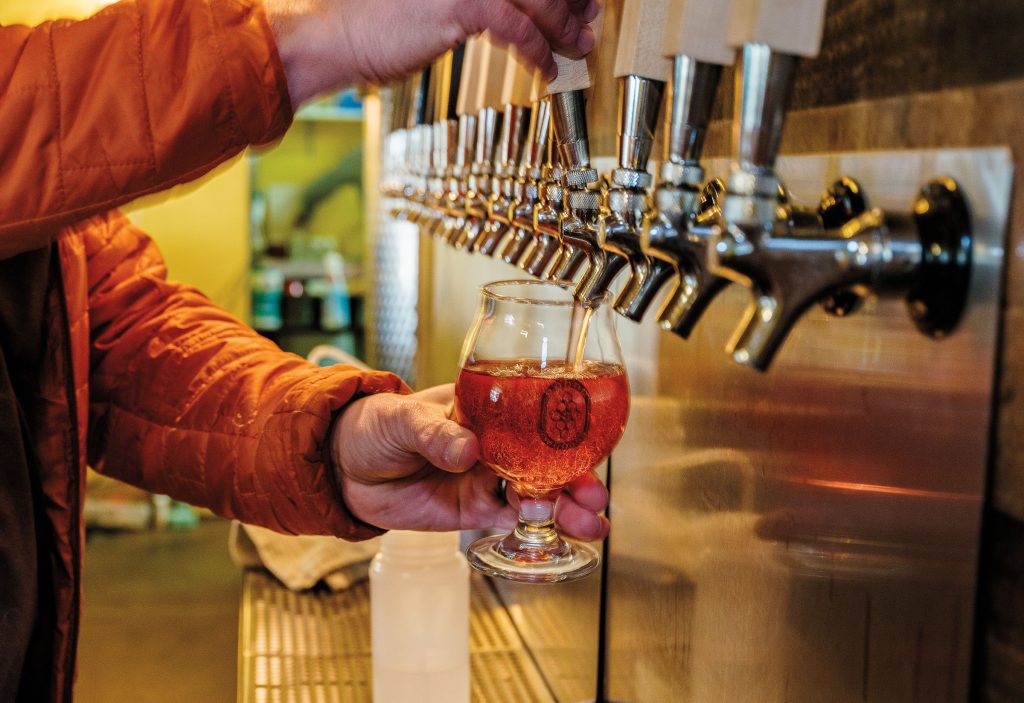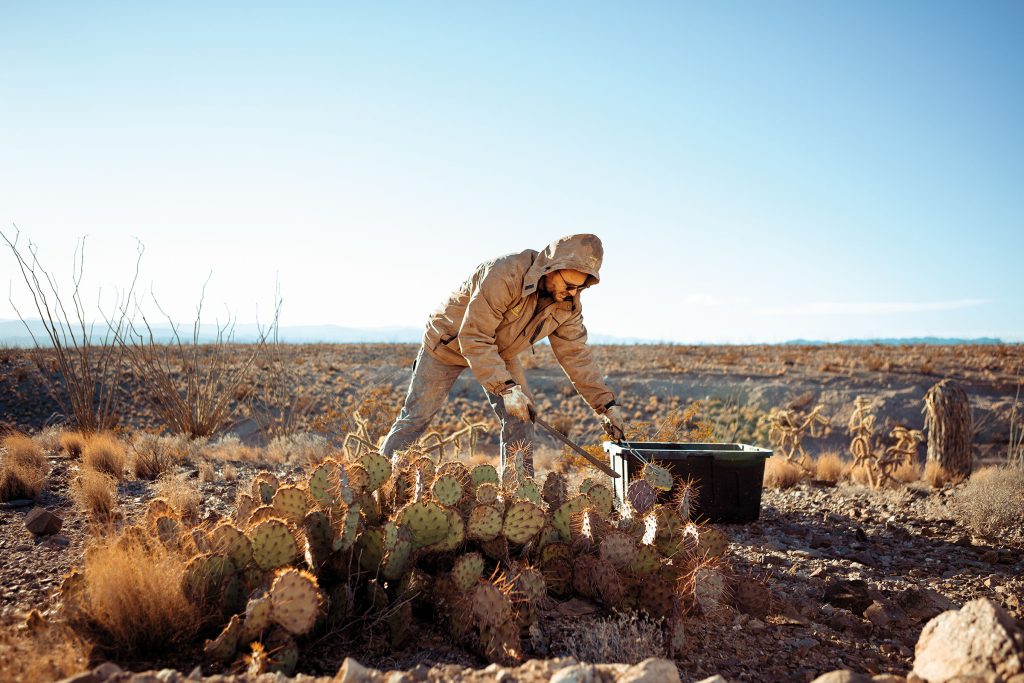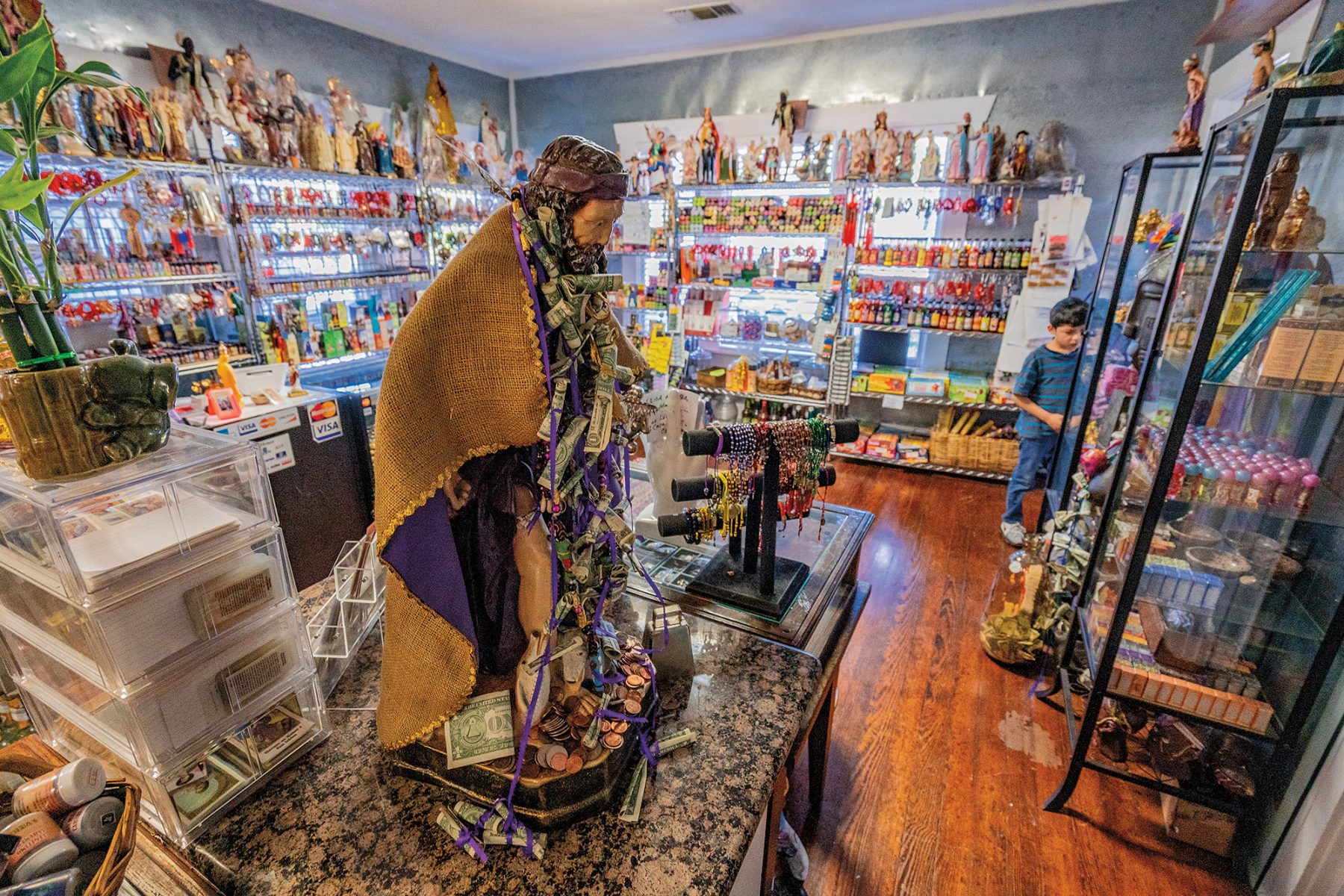
In the spirit room of Botanica La Caridad, a retail store in San Antonio, wooden statues of West African deities are crammed up against a bucket of sticks and machetes, garlanded with chicken’s feet and anchored by a cross. In the opposite corner stands a masked mannequin with rolled-up cash tucked discreetly beneath its long red dress and unopened bottles of wine.
David Herrera, owner and operator of the store, nods proudly as he points to the bottles lined up around the altars. “There are two spirits living in here,” he says. “We get people who bring in photos or scraps of clothing, and they seal them up in these jars. They’re from people asking for favors.”
Favors from on high are what the botanica is all about. Botanicas—sometimes called hierberías—are stores that specialize in spiritual concerns. Their shelves stock items for faiths from Roman Catholicism to Santería, part of a fusion of practices produced by the great American melting pot. They are a fixture of Hispanic neighborhoods in Texas cities: Killeen, Seguin, and Sherman, to name a few examples. San Antonio and Houston both have nearly 20 botanicas operating within their city limits, and despite catering to a primarily Spanish-speaking populace, they’re attracting an increasingly diverse clientele. The curious need only step inside.
Botanica La Caridad occupies a neat, white storefront amid a residential neighborhood in North Central San Antonio. The main room is a collage of bright colors; incense hangs in tidy assortments, while votive candles are stacked alongside glass cases filled with tarot cards and statues of saints. In a dark side room, rows of glass bottles containing dried herbs sit 5 feet above the floor.
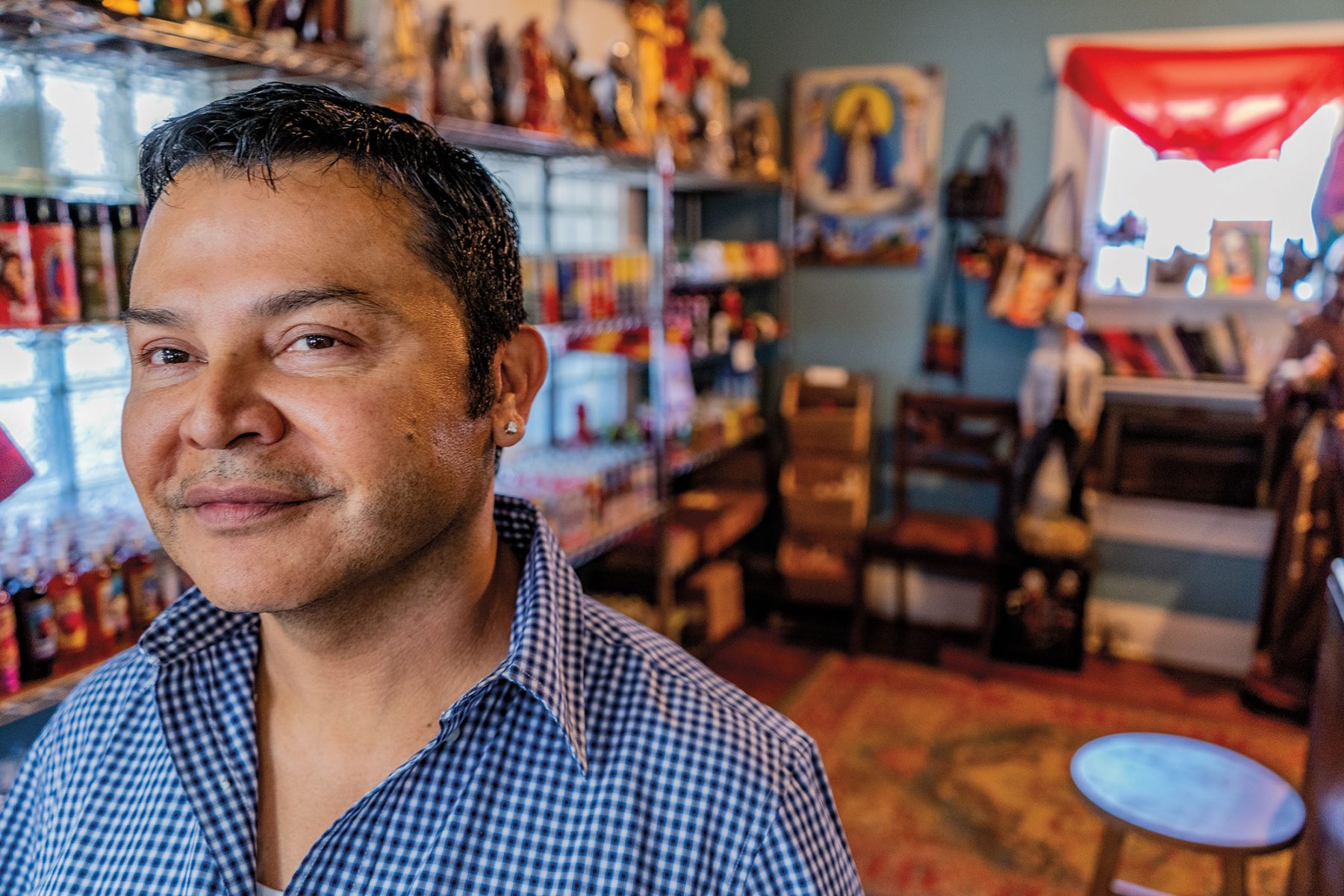
Herrera’s back office contains a large desk and set of cabinets piled high with African statuary, saint statues, and bits of spiritual bric-a-brac. In 1992, when he was 26, Herrera was initiated into Santería, a religion that mixes the pantheism of West Africa with the veneration of Catholic saints.
As a santero, or priest, Herrera uses rituals to help his clients intercede with the orishas, the human aspect of spirits or saints. At first, he did readings and cleansings out of his apartment. Then in the late 1990s, he opened the first incarnation of Botanica La Caridad on the West Side of San Antonio. (The store moved to the Beacon Hill neighborhood last year.) He named it after the Virgen de la Caridad del Cobre, who is the Patroness of Cuba, the Queen of Rivers, and the Saint of Mercy.
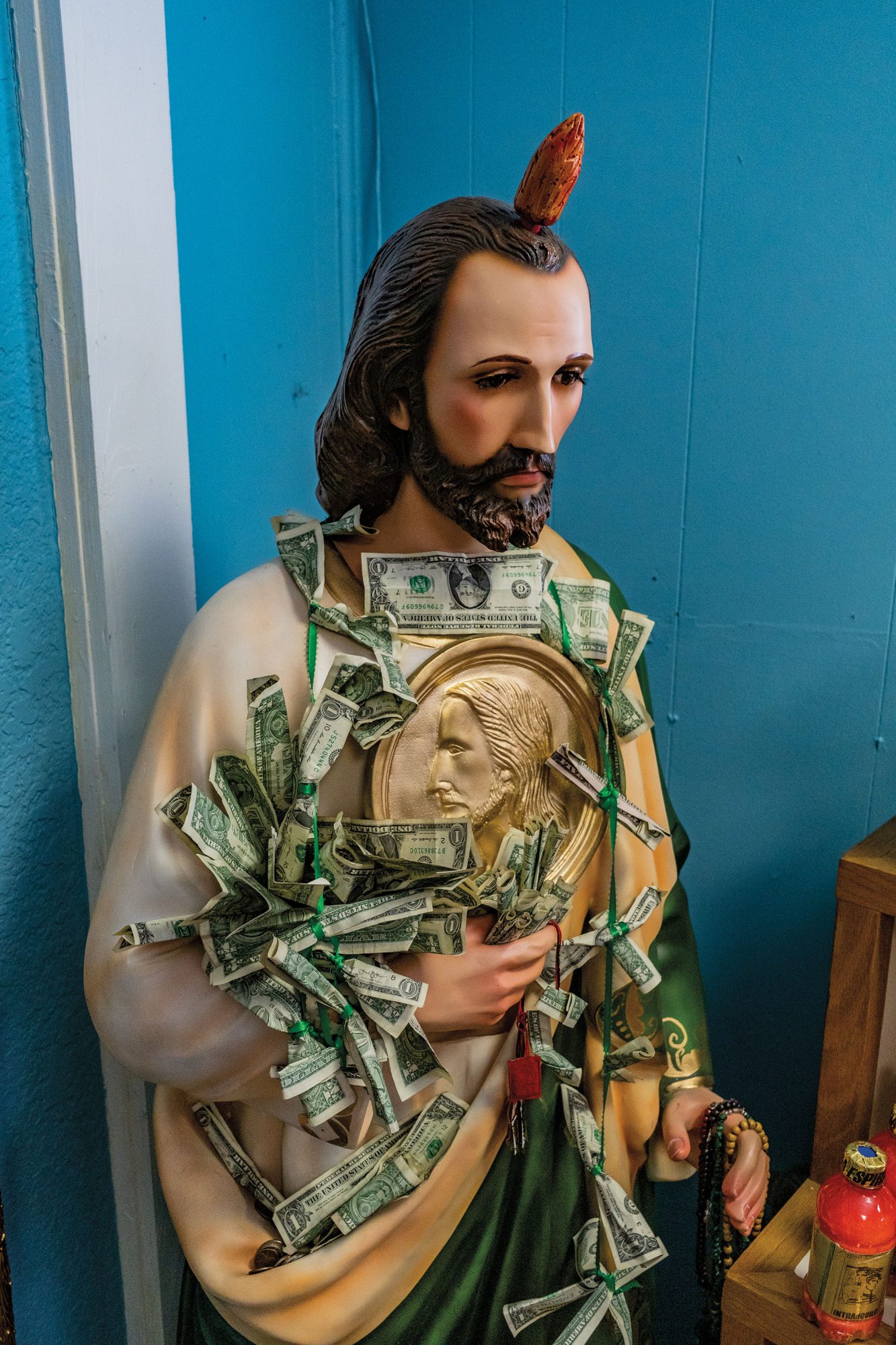
Monica Vidaurri, the store manager and Herrera’s sister, says the botanica is now attracting an economically diverse clientele, including doctors, lawyers, and politicians seeking its services: tarot card readings, spiritual cleansings, and guidance for dealing with the saints. People invoke St. Benedict, the saint of exorcisms, for aid in dealing with legal issues or for charms to keep them from getting pulled over. Real estate agents come in looking for St. Joseph statues, which they’ll bury in a corner of a front yard to help them sell a house.
“I sell a lot of sage, I sell a lot of stuff for cleansings, I sell a lot of candles,” Vidaurri says. “People will light a candle for all kinds of reasons. If a family member’s sick, if they’re sick, they’ll come and look for a candle to see what might make them feel better. There’s a love candle to bring [people] together. We do breakup candles, too. … There’s something for every kind of situation.”
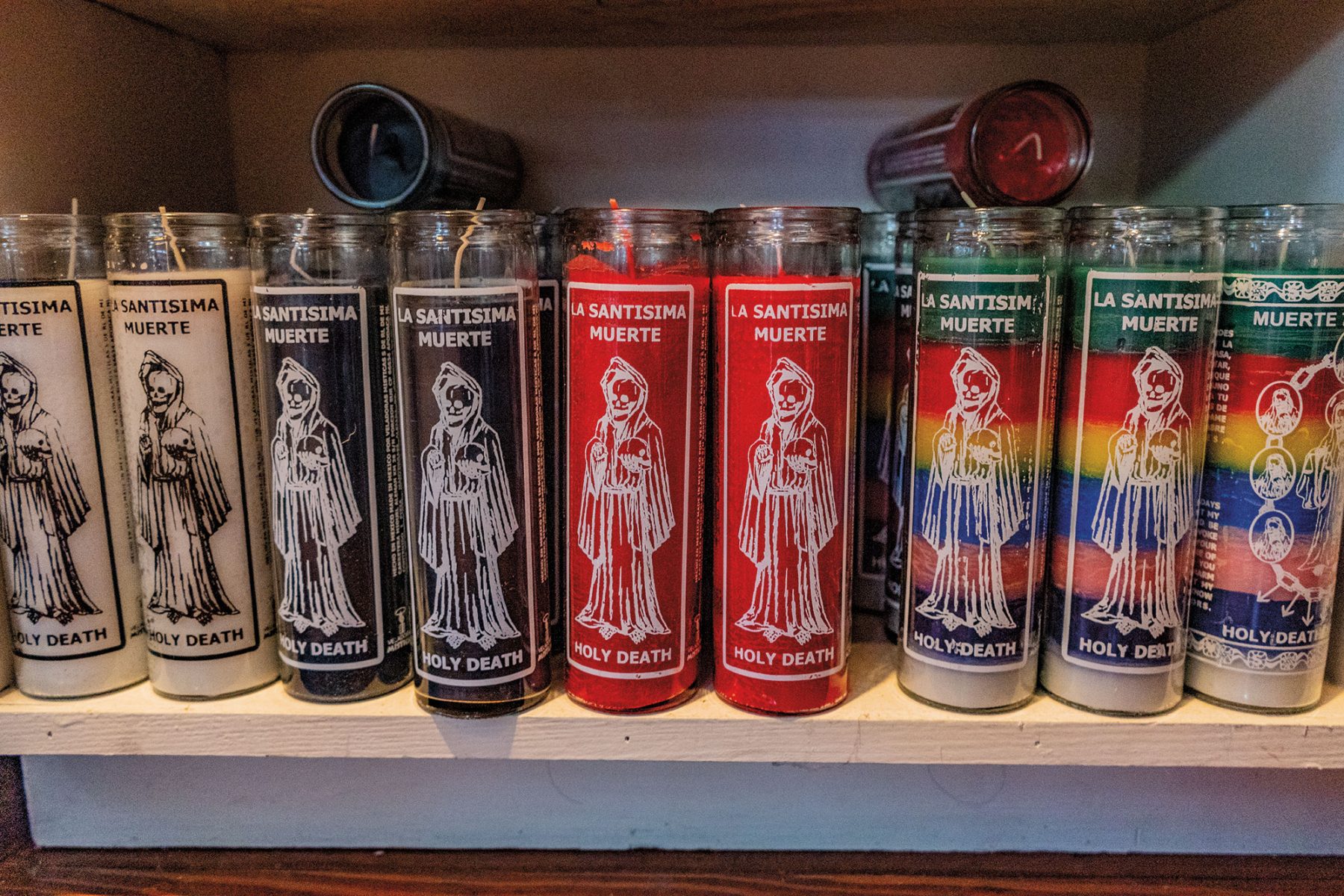
A selection of candles. Photo: Will van Overbeek
Some elements of the botanica can worry the uninitiated. Vidaurri’s office holds statuary for more specialized practices, including several figures of Santa Muerte, the macabre-looking skeleton saint, who protects those who work at night. Vidaurri has a shrine to Santa Muerte tucked between her desk and the wall, where it’s easy to overlook, with offerings of wine, candy, and flowers below the lowering skull. It’s there for protection, Vidaurri says. The botanica business can be surprisingly cutthroat, and it’s always good to have a higher power looking out for your interests.
That desire for a bit of help is what draws people in to peruse La Caridad’s shelves, to sit on the wooden pews in the waiting room, and to go with Herrera into the room where the spirits live. In the botanica, Vidaurri says, it doesn’t matter what you believe in, so long as you believe in something. “Everybody has some kind of faith in something, and that’s where we come along and help guide them to where they’re at a better place.”
